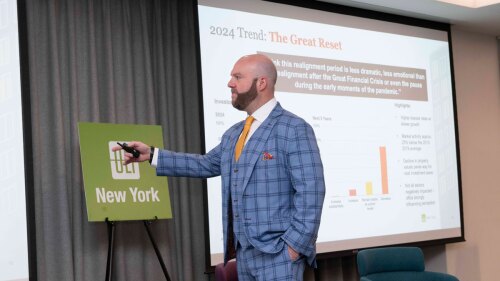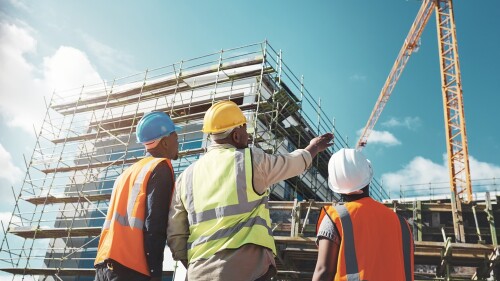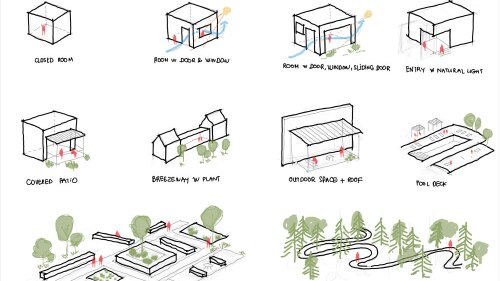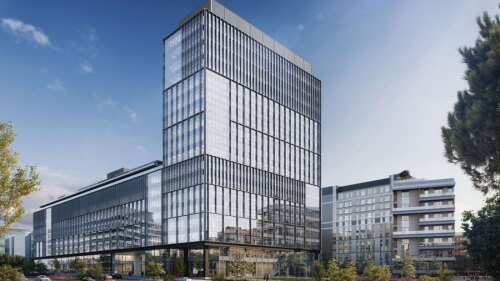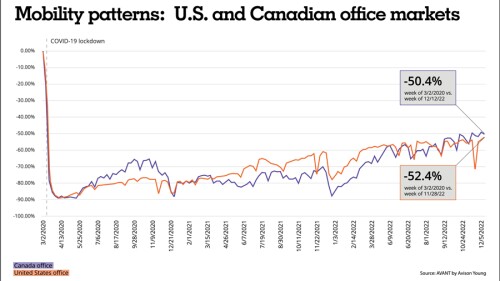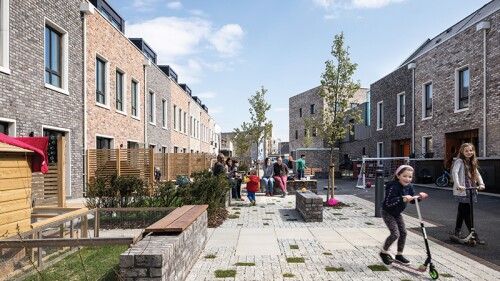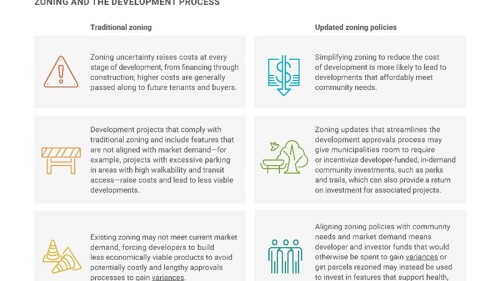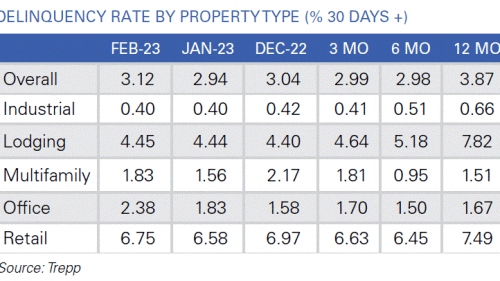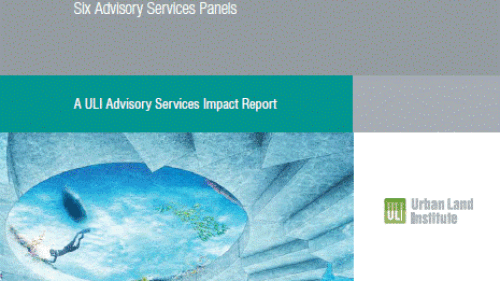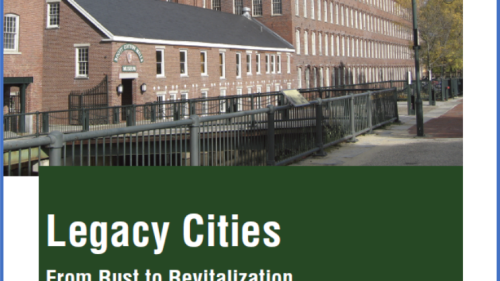Emerging Trends
Canada’s real estate market remains deeply challenged: Although 2026 isn’t expected to deliver a rapid rebound, there is growing recognition that the next cycle will not mirror the last. Instead, the industry is entering a generational transition that demands new strategies, partners, and capital sources, as well as a fundamental modernization of how companies operate. A record-breaking crowd of more than 500 real estate leaders heard the “balanced but cautiously optimistic” 2026 outlook at the 21st Annual “ULI Toronto Trends in Real Estate” event at the Fairmont Royal York hotel.
The 2026 Emerging Trends in Real Estate® Asia Pacific report, published jointly by ULI and PwC found a mood of cautious optimism among real estate professionals; however, respondents described considerable disparities in markets and sectors across the region. Tokyo was ranked as the top city for investment in the Emerging Trends survey, top of the table for the third consecutive year, followed by Singapore, Sydney, Osaka, and Seoul.
Concerns about deglobalization surge, AI revolutionizes real estate, and top European cities for investment identified as London, Madrid, Paris, Berlin, and Amsterdam
Despite volatility and uncertainty, real estate investors are finding ways to make deals. A new consensus is forming around a “reset” in the economy and commercial real estate, according to the 2024 Emerging Trends in Real Estate forecast produced by PwC and ULI. “There’s this sentiment of guarded optimism,” says Bill Staffieri, partner with PwC. He presented the forecast to hundreds of real estate experts at the Real Estate Outlook 2024, hosted in late January in New York City by ULI New York.
Real estate market participants are in the midst of a “Great Reset” when it comes to adjusting views related to pricing, risk, and return expectations in an environment marked by higher interest rates and slower economic growth. The need to align thinking and strategies to fit current market dynamics is one of the key themes in the 2024 Emerging Trends in Real Estate forecast for the United States and Canada.
As creative placemaking has proliferated in the real estate industry, questions regarding its costs and benefits have often surfaced: What is the cost and what is the business case? Does it enhance the value of real estate? And what value is delivered?
Providing end-users with a choice that originates from a binary view—either indoor or outdoor—is no longer enough.
At the Europe ULI Hines Student Competition final, the team from the University of Manchester in England sized up their fellow competitors. They were impressed by the other presentations, but they felt confident that their own had a slight edge because of its core strength: its diversity.
Strict one-use-per-parcel zoning rules have long limited the growth of mixed-use projects in Spain, but the builders of a new office, residential, and commercial project in Madrid hope their example will pave the way for other integrated projects.
Innovative technology platforms already are helping many owners operate apartment buildings more efficiently and improve services for tenants. But experts say that is just the start of a revolution that could transform the multifamily segment.
In an era when the costs for infrastructure are skyrocketing, the need for innovative financing structures is more critical than ever. The panel discussion “Accelerating Development with Early-Stage Financing” at the 2023 ULI Spring Meeting provided a fresh perspective on how early-stage capital can expedite development timelines and transform the industry.
The Real Estate Economic Forecast, produced by the ULI Center for Real Estate Economics and Capital Markets, is based on a survey conducted in April 2023 of 41 economists and analysts at 37 leading real estate organizations. According to the survey, the U.S. economy will slow in 2023 and 2024, with recovery expected to begin in 2025. The real estate market will follow suit, with flat to negative results over the next two years, followed by mostly positive news in 2025.
Avison Young CEO Mark Rose shares how changes in work patterns, the rise of hybrid and remote working, new space usage trends, and the ever-increasing effects of e-commerce on physical brick-and-mortar retail are driving the need for adaptation and creative utilization.
Developers and buyers create new models for housing that hold the promise of a more environmentally friendly, connected, and multigenerational way of living.
The U.S. Army Corps of Engineers and the Texas General Land Office are mounting a $31 billion coastal resilience project on the Texas coast, the most expensive project ever led by the Corps and the largest coast management project ever.
A new ULI report shares promising insights and examples of zoning regulations from across the United States.
Office property owners who were able to weather the worst of the COVID-19 pandemic are crashing into a hard reality wrought by sharply lower demand and higher interest rates. Undercurrents of stress are now emerging in the form of defaults.
Brian Swett, a longtime member of ULI Boston and Arup’s Americas East Leader, has been announced as the chair of the ULI Randall Lewis Center for Sustainability. Working with ULI staff, Swett will serve a two-year term with the Lewis Center. A former chief resilience officer for the city of Boston, Swett recently spoke to Urban Landabout the opportunities he sees in the coming months.
In late January, ULI Indiana convened a panel of local real estate experts to unpack Indiana real estate trends for 2023.
A ULI webinar in December focused on the role of commercial real estate in fulfilling the vision of the United Nations’ Conference of the Parties 27 in Sharm el-Sheikh, Egypt, with leading companies pledging to net-zero operations as soon as 2025.
ULI and PwC US has released Emerging Trends in Real Estate ® 2023, an annual report highlighting the trends shaping the real estate industry. Insights from the report reconfirm two bifurcated market trends: aspects of the real estate industry are “normalizing” and reverting to pre-COVID patterns while others have permanently shifted to the “new normal” that was adopted with the pandemic.
The U.S. has been hit with 15 separate billion-dollar weather and climate disasters in the first nine months of 2022, according to scientists from NOAA’s National Centers for Environmental Information.
A new ULI report explores the social, environmental, and economic benefits of creative placemaking, along with successful case studies in the United States.
ULI is pleased to announce the release of the research report: Legacy Cities: From Rust to Revitalization. This report examines a cross section of small- and medium-sized cities that have used leadership, historic preservation, creative sources of funding, and other strategies to reinvent themselves.
A long-term trend of housing underproduction exacerbated by rising inflation and economic uncertainty threatens home attainability for millions of people across the United States, according to the 2022 Home Attainability Index, a comprehensive new study from the Urban Land Institute’s Terwilliger Center for Housing.
Sponsored Content:The old adage, “Leave it better than you found it,” is central to Hilco Redevelopment Partners’ vision of transforming old, run-down areas and making the economy, environment, and community more sustainable.
The Los Angeles Better Buildings Challenge in June presented sustainability prizes to the “Best Buildings” in Los Angeles at its annual Innovation Awards. Hudson Pacific Properties, Barings, and CommonWealth Partners, which are both active members of ULI Los Angeles and Greenprint, were among the six projects honored.
Urbanizing suburbia is something many developers are looking to achieve, adding density as land prices rise. San Diego and its surrounding area have been prime locations for use of this strategy. On Thursday, a panel at the ULI Spring Meeting in San Diego explained the thought process and how to execute on this goal, focusing in particular on life sciences architecture.
In the context of an economic shock from the outbreak of war in Ukraine and continuing inflationary concerns, Emerging Trends in Real Estate ® Global Outlook 2022focuses on the global outlook for the real estate industry increasing pressure for finance to support the decarbonization of real estate. The industry challenges lenders and their regulators to provide debt for the retrofit of existing buildings and the scale-up of the “climate tech” needed.




